Related Research Articles
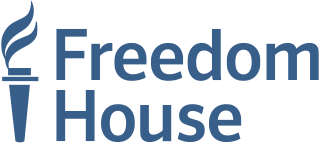
Freedom House is a non-profit organization based in Washington, D.C., U.S. It is best known for political advocacy surrounding issues of democracy, political freedom, and human rights. Freedom House was founded in October 1941, with Wendell Willkie and Eleanor Roosevelt serving as its first honorary chairpersons. Its mission is to expand and defend freedom globally, and its vision is a world where all are free. Most of the organization's funding comes from the U.S. State Department and other government grants. It also receives funds from various semi-public and private foundations, as well as individual contributions.
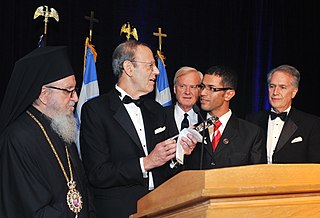
The National Endowment for Democracy (NED) is a quasi-autonomous non-governmental organization in the United States founded in 1983 to advance democracy worldwide, by promoting political and economic institutions, such as political groups, trade unions, free markets, and business groups.

Psiphon is a free and open-source Internet censorship circumvention tool that uses a combination of secure communication and obfuscation technologies, such as a VPN, SSH, and a Web proxy. Psiphon is a centrally managed and geographically diverse network of thousands of proxy servers, using a performance-oriented, single- and multi-hop routing architecture.

The Bureau of Democracy, Human Rights and Labor Affairs (DRL) is a bureau within the United States Department of State. The bureau is under the purview of the Under Secretary of State for Civilian Security, Democracy, and Human Rights.
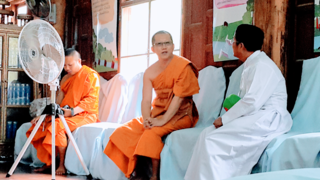
The status of religious freedom around the world varies from country to country. States can differ based on whether or not they guarantee equal treatment under law for followers of different religions, whether they establish a state religion, the extent to which religious organizations operating within the country are policed, and the extent to which religious law is used as a basis for the country's legal code.
Censorship in Cuba is the topic of accusations put forward by several foreign groups-organizations and political leaders, as well as Cuban dissidents. The accusations led the European Union to impose sanctions from 2003 to 2008 as well as statements of protest from groups, governments, and noted individuals.
The NetFreedom Task Force, previously called the Global Internet Freedom Task Force (GIFT), is an initiative within the U.S. Department of State that acts as the State Department's policy-coordinating and outreach body for Internet freedom. The members address Internet freedom issues by drawing on the Department's multidisciplinary expertise in international communications policy, human rights, democratization, business advocacy, corporate social responsibility, and relevant countries and regions. It reports to the Secretary through Under Secretary for Economic, Business, and Agricultural Affairs and Under Secretary for Democracy and Global Affairs. The task force coordinates the State Department’s work with other agencies, U.S. Internet companies, non-governmental organizations, academic researchers, and other stakeholders.
Censorship by country collects information on censorship, Internet censorship, freedom of the press, freedom of speech, and human rights by country and presents it in a sortable table, together with links to articles with more information. In addition to countries, the table includes information on former countries, disputed countries, political sub-units within countries, and regional organizations.

Michael H. Posner is an American lawyer, the Founding Executive Director and later the President of Human Rights First, the former Assistant Secretary of State for Democracy, Human Rights, and Labor (DRL) of the United States, currently director for the Center of Business and Human Rights at NYU Stern School of Business, as well as Professor of Business and Society at New York University Stern School of Business, and a board member of the International Service for Human Rights.
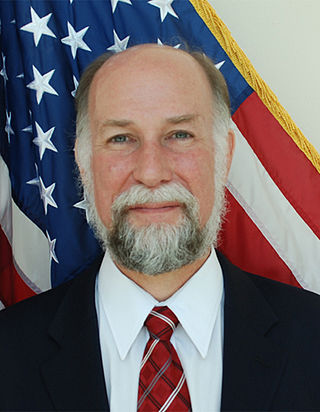
Jonathan Don Farrar was the United States Ambassador to the Republic of Panama from 2012 to 2015. He was previously the Chief of Mission of the United States Interests Section in Havana, Cuba, from July 2008 to September 2011.
Media development involves capacity building for institutions or individuals related to freedom of expression, pluralism and diversity of media, as well as transparency of media ownership. Media development plays a role in democracy and effective democratic discourse through supporting free and independent media.

Human rights in Zambia are addressed in Zambia's constitution. However, the Zambia 2012 Human Rights Report of the United States Department of State noted that in general, the government's human rights record remained poor. The 2021 version of this report noted improvements in many areas.
This list of Internet censorship and surveillance by country provides information on the types and levels of Internet censorship and surveillance that is occurring in countries around the world.
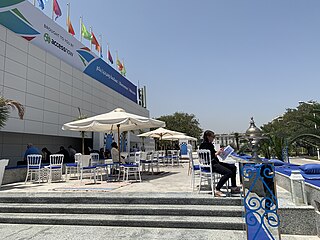
Access Now is a non-profit organization founded in 2009 with a mission to defend and extend the digital civil rights of people around the world. Access Now supports programs including an annual conference on Human Rights (RightsCon), an index of internet shutdowns (#KeepItOn), and providing exit nodes for Tor network.
Tavaana: E-Learning Institute for Iranian Civil Society provides free online training and Persian and English learning resources to Iranians. Tavaana - meaning "empowered" and "capable" in Persian – was launched in 2010 with a mission “to support active citizenship and civic leadership in Iran through education and civil society capacity building.”
Internet censorship in Switzerland is regulated by the Federal Supreme Court of Switzerland on a case by case basis. Internet services provided by the registered with BAKOM Internet service providers (ISPs) are subject to a "voluntary recommendation" by the Federal Supreme Court of Switzerland, which requires blocking of websites just after 18 December 2007. As of October 2015, this might change soon and additional topics like Online gambling are on the focus now.

The Open Technology Fund (OTF) is an American nonprofit corporation that aims to support global Internet freedom technologies. Its mission is to "support open technologies and communities that increase free expression, circumvent censorship, and obstruct repressive surveillance as a way to promote human rights and open societies." As of November 2019, the Open Technology Fund became an independent nonprofit corporation and a grantee of the U.S. Agency for Global Media. Until its formation as an independent entity, it had operated as a program of Radio Free Asia.
The status of religious freedom in Oceania varies from country to country. States can differ based on whether or not they guarantee equal treatment under law for followers of different religions, whether they establish a state religion, the extent to which religious organizations operating within the country are policed, and the extent to which religious law is used as a basis for the country's legal code.
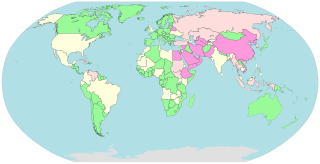
This list of Internet censorship and surveillance in Europe provides information on the types and levels of Internet censorship and surveillance that is occurring in countries in Europe.

This list of Internet censorship and surveillance in the Americas provides information on the types and levels of Internet censorship and surveillance that is occurring in countries in the Americas.
References
- ↑ "Bureau of Democracy, Human Rights and Labor (DRL) Internet Freedom Annual Program Statement". Federal Grants. Federal Grants. Retrieved 27 August 2015.
- ↑ "Portfolio Assessment of the Department of State Internet Freedom Program" (PDF).
- ↑ Posner, Michael. "Michael Posner: Global Internet Freedom and the Rule of Law, Part II". HumanRights.gov. The Office of Policy Planning and Public Diplomacy. Archived from the original on 5 September 2015. Retrieved 27 August 2015.
- ↑ Hanson, Fergus (25 October 2012). "Internet Freedom: The Role of the U.S. State Department". Brookings Institution. Retrieved 27 August 2015.
- ↑ "Bureau of Democracy, Human Rights and Labor (DRL) Internet Freedom Annual Program Statement". Federal Grants. Federal Grants. Retrieved 27 August 2015.
- ↑ "Bureau of Democracy, Human Rights and Labor Request for Statements of Interest DRL FY15 Internet Freedom Annual Program Statement". DoResearch. Stanford University. Retrieved 27 August 2015.